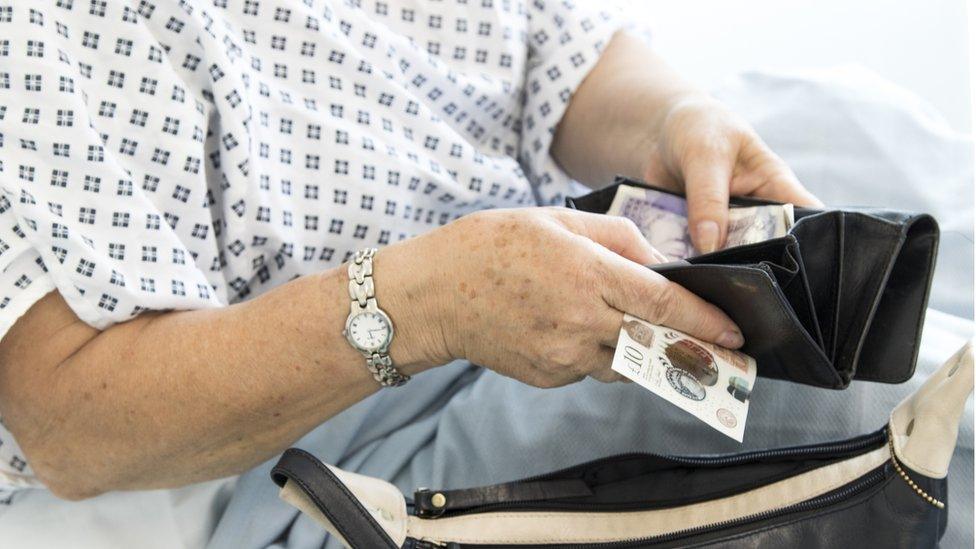Patients owe Scots NHS 拢3.2m in treatment costs
- Published

GPs are not required to establish a patient's country of origin before treatment
A failure to identify those patients not entitled to free NHS care is costing Scotland's health boards hundreds of thousands of pounds a year.
Holyrood's health committee made the claim after figures showed NHS Scotland was owed more than 拢3.2m by overseas patients who had received treatment.
GPs are not required to note a person's country of origin before treating them.
Only those people who are not "ordinarily resident" in the UK are charged for using NHS services.
The system in Scotland differs from that in England where providers of NHS treatment are required to make sure patients are eligible for free care - and to charge them up front if not.
Those measures apply to planned, non-urgent care - A&E, general practice and infectious disease treatment remain free to all.
Convener of the Health and Sport Committee, Labour's Lewis Macdonald said: "The committee supports the principle that anybody in Scotland can access GP services or A&E departments free of charge when needed.
"However, we are concerned that NHS boards are missing out on vital sums of money to which they are due by not being able to identify those entitled to NHS care."
The committee has produced a report into the issue, which describes an "inconsistent approach" by Scottish health boards, where some reclaim costs for foreign patients while others do not.
The Scottish Parliament Information Centre has calculated that individuals who are not from within the European Union's Economic Area owe more than 拢3.2m to boards for treatment which has not been paid for the past five years.
The committee also said that boards could recoup more than 拢700,000 a year if they participated in a scheme to report usage of the NHS by holders of the European Health Insurance Card (EHIC).
'Checking residency'
They found that not all health boards were participating in the EHIC Incentive Scheme, which allows them to claim back 25% of treatment costs of EHIC card holders.
NHS figures provided in December 2018 showed that 拢5m worth of treatment - relating to 4,841 individuals - had been reported to the Department for Work and Pensions by participating boards since the scheme was set up at the end of 2014, which resulted in 拢1.25m being reimbursed to those boards.
The committee estimated that if all boards participated in the scheme, the average amount coming back to them could be 拢710,000 a year.
Mr Macdonald said: "We believe the Scottish government should begin a review of the current situation immediately and have asked them to adopt a clearer and more unified approach to ensure access to NHS treatment is applied fairly and consistently."
The committee said its research had also shown that the prices charged for NHS services to those not entitled to them varied considerably across the country "without any justification for the differences in fees being provided."
The Scottish government welcomed the committee's report. It said the issue had been made more complicated by the uncertainty surrounding Brexit.
A spokeswoman added: "The threat to reciprocal healthcare comes entirely from the UK government's Brexit policy and would be resolved by staying in the EU, in line with the wishes of the people of Scotland.
"We are committed to ensuring that life-saving care will be provided as a priority before checking residency.
"We will study the committee's report and respond once we have clarity around new arrangements."